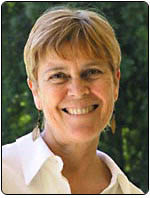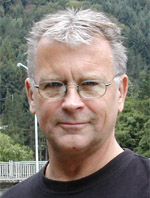
THE EXPERT JURY
We are very proud to present the jurors in this competition. We met Prof. Moylan and Dr Carson on our world tour 2003/2004 and are absolutely delighted to have them in the jury this year. They have been assigned the task to read the entries of the five finalists and to nominate one each to the first prize. The winning entry of the reference group's internal vote will count as the third nominee. Two nominations out of three is necessary to win the championship. If three different entries are nominated, a second vote will be cast between the three. The jurors also have the opportunity to pick their nominee among the other entries than those nominated by the reference group.
|
|
 |
|
|
Prof. TOM MOYLAN Tom Moylan is Glucksman Professor of Contemporary Writing in English and Director of the Ralahine Centre for Utopian Studies at the University of Limerick in Ireland. He has written extensively on utopian literature and on the method and practice involved in the utopian process. His books include "Demand the Impossible: Science Fiction and the Utopian
Imagination" |
Dr. LYN CARSON Dr Lyn Carson is a senior lecturer in applied politics at
the University of Sydney. She has written handbooks on consultation
methods and many articles and book chapters on public participation.
She is the author, with Brian Martin, of Random Selection
in Politics. She has participated in many examples of active democracy-for
example Australia's first consensus conference, Australia's
first two deliberative polls, citizens' juries, and a combined
citizen's panel and televote. She maintains an optimistic
website: www.activedemocracy.net |
